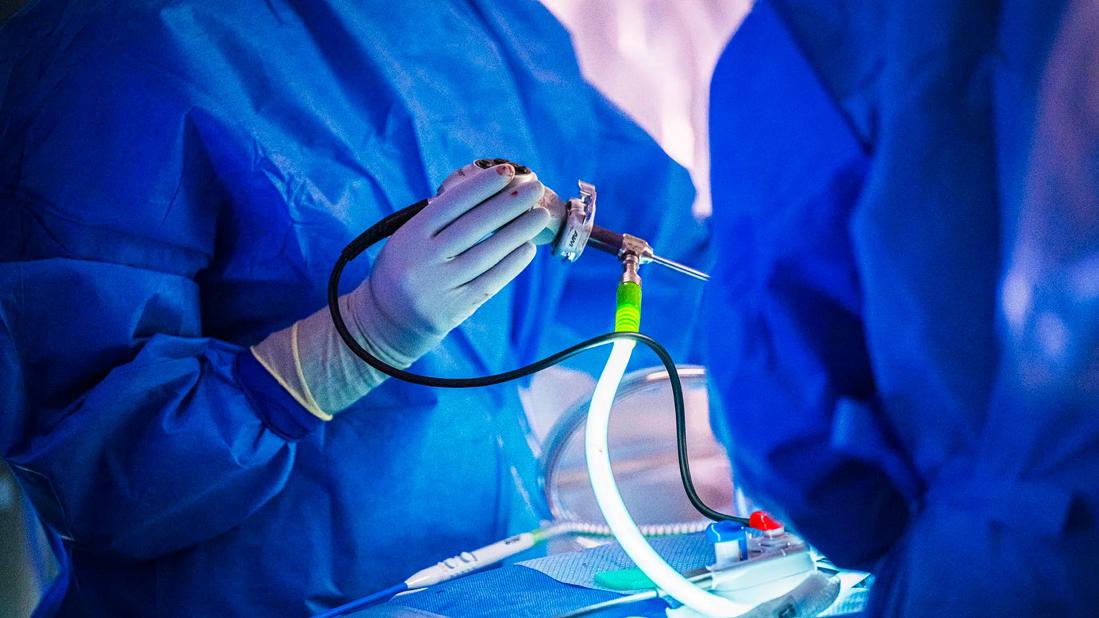Innovative team approach helps patient lose enough weight to receive a donor heart

A 32-year-old South Florida man with Class 3 obesity, advanced heart failure and a history of recurrent admissions for cardiogenic shock was transferred to Cleveland Clinic Florida in June 2021 to be evaluated for mechanical circulatory support or heart transplantation.
Advertisement
Cleveland Clinic is a non-profit academic medical center. Advertising on our site helps support our mission. We do not endorse non-Cleveland Clinic products or services. Policy
Despite optimal medical therapy that included intravenous inotropes, the patient maintained an ejection fraction of <15% and had limited functional cardiac capacity.
The patient’s body mass index (BMI) at admission was 45. After evaluation by a multidisciplinary team of physicians and surgeons, the patient’s best treatment option was determined to be heart transplantation. However, he would be required to lose enough weight to decrease his BMI to 35.
BMI of >35 (Class 2 or Class 3 obesity) generally is a contraindication for heart transplantation due to associated perioperative risks, poor transplant outcomes and increased postoperative mortality.
Although bariatric surgery’s potential as a bridge to heart transplant has not been extensively studied, a systematic review and meta-analysis published in early 2022 determined that the procedure can facilitate sustained weight loss in patients with obesity and end-stage heart disease, improving heart transplant candidacy and the incidence of transplantation.
“We knew we could address fluid retention and optimize the heart’s pumping power with medications, but his severe obesity would require bariatric surgery,” says Cleveland Clinic Florida cardiothoracic surgeon Nicolas Brozzi, MD. “We felt this could be performed if his heart could be supported to some degree.”
Over the past decade, the number of patients who have undergone bariatric surgery prior to transplantation has been small. The general approach has been to implant a left-ventricular assist device (LVAD), allow them to regain heart function, then consider bariatric surgery. But only 30% of patients following this strategy have received a heart transplant.
Advertisement
When the United Network for Organ Sharing changed the criteria for determining the allocation of donor hearts in 2018 with the goal of reducing waitlist mortality, patients with LVADs were recategorized as less urgent and dropped further down on the waiting list. A 2021 single-institution study found that the allocation changes dramatically altered bridging strategies for heart transplantation, with a sharp decrease in the number of recipients supported with durable LVADs.
“LVADs became in practice a therapy for prolonged support, which discouraged some patients from using them,” says Dr. Brozzi.
Additionally, while LVADs provide the best support for advanced heart failure, they are prone to complications including infection and stroke. These realities prompted Dr. Brozzi and his colleagues to consider an alternative: using a temporary LVAD, the Impella 5.5, to support the patient during bariatric surgery.
Dr. Brozzi reached out to veteran bariatric surgeon Raul Rosenthal, MD, Chair of Cleveland Clinic Florida’s Regional Digestive Disease & Surgery Institute to gauge his comfort with operating on the patient.
Having performed 3,000 bariatric operations, including gastric bypass, sleeve gastrectomies and other complex reinterventions, Dr. Rosenthal was confident. If the patient remained hemodynamically stable on an Impella, Dr. Rosenthal believed he could perform a laparoscopic sleeve gastrectomy in 45 minutes.
“Sleeve gastrectomy has been the most popular bariatric procedure for 15 years, because it is the safest,” Dr. Rosenthal says. “For someone as sick as this patient, who required multidisciplinary treatment with surgery, anticoagulants and immunosuppressants, I felt that the simplest and safest procedure would be the right choice.”
Advertisement
In July, Dr. Brozzi operated to insert an Impella 5.5 through a small opening in the patient’s right axillary artery. With the LVAD in place, Dr. Rosenthal performed a sleeve gastrectomy within the promised 45-minute window.
The patient was transferred to the ICU, had an uneventful recovery and was weaned off the Impella five days later.
Over the next 45 days, the patient lost 85 pounds, which was sufficient to qualify him for placement on the transplant waiting list. He received a new heart in October, and was discharged to home in early November. Six months after undergoing bariatric surgery, his BMI had stabilized at 35, and all medical conditions associated with his obesity had disappeared. He reports having no physical limitations and has resumed working full time and pursuing his passion for music composition.
Severe obesity is known to change the physiology and anatomy of the heart, resulting in heart failure and conduction abnormalities. With both obesity and heart failure expected to increase significantly by 2030, the need for bariatric surgery prior to transplantation may become more common.
Clinicians should consider referring patients with obesity and heart failure to an institution such as Cleveland Clinic with advanced bariatric and cardiac surgery capabilities, Dr. Brozzi says.
“As medicine evolves,” he says, “you can be assured we will continue to develop new lifesaving alternatives for this complex population of patients.”
Advertisement
Advertisement

Nonthermal technique reduces bleeding and perforation risk

Standardizing a minimally invasive approach for Barrett’s Esophagus and Esophageal Cancer

PSMA-targeted therapy for metastatic prostate cancer now offered at Cleveland Clinic Weston Hospital

Nationally recognized urologic oncologist offers vision for growth, innovation, and excellence

Noninvasive modality gains ground in United States for patients with early-to-moderate disease

Cleveland Clinic Weston Hospital’s collaborative model elevates care for complex lung diseases

Interventional pulmonologists at Cleveland Clinic Indian River Hospital use robotic technology to reach small peripheral lung nodules

Trained in the use of multiple focal therapies for prostate cancer, Dr. Jamil Syed recommends HIFU for certain patients with intermediate-risk prostate cancer, especially individuals with small, well-defined tumors localized to the lateral and posterior regions of the gland.